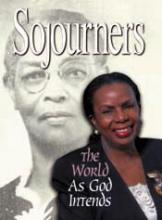Life is beautiful. Hardly the sentiment for a film set partly in a German concentration camp. But Roberto Benignis La Vita + Bella (Life Is Beautiful) has used this paradox to make a wonderfully sweet, deeply sad, ultimately triumphant exclamation of love and sacrifice.
In a courageous departure from what Italian film audiences have come to expect from their leading comic actor, Benigni himself wrote and directed this homage to a fathers love, and received this years Best Actor Oscar for his effort. The bond between Benigni and the impish Giorgio Cantarini, as his son Goshue (pronounced Joshu-ay), contrasts sharply with the pathos of their village in pre-World War II Italy. The rest of their town may be concerned about racial purity and national pride, but its bath night, so father and son must conspire to hide from Mom.
Like a symphony with distinct but inseparable parts, Life Is Beautiful is a film in two movements that seem at first disharmonious, if not completely out of sync. The first half of the film follows the Chaplinesque Guido (Benigni) as he comically wiggles his way into the heart of his love-at-first-sight (real-life wife Nicoletta Braschi). Even his countrys slow turn to fascism is kept at arms length, its local emissaries played for buffoons as his romance leads to marriage and then to a delightful son whose favorite plaything is a toy tank.
At this point your heart anticipates the happily-ever-after; instead, however, the second movement begins and the darkness comes.
Marked by their Jewishness, Guido and Goshue are abruptly taken to a train bound for a concentration camp. As they are squeezed into the train car, Guido spontaneously begins the charade that will carry them through the coming ordeal. Its all a big game, he tells his son. "It took me a whole month to plan this thing! Look, we got the last two places in line!"
Read the Full Article
